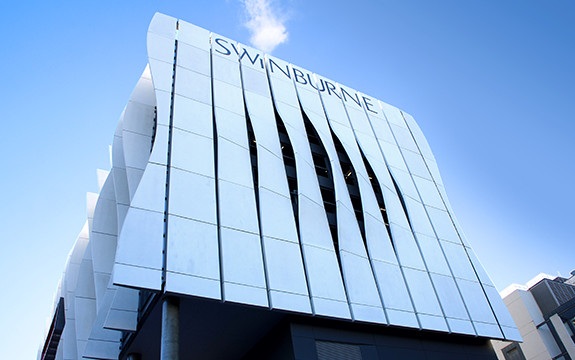Don't blame the booze, it's zero tolerance on violence that's needed

In Summary
- In an opinion piece published in The Australian, Adjunct Associate Professor Mike Keane from the Centre for Human Psychopharmacology at Swinburne University of Technology says cultural violence needs to be addressed and the people who are committing the violence need to be dealt with.
Only recently, our collective consciousness was shocked by the death of Thomas Kelly, and now we have another young man in a critical condition after allegedly being struck in Sydney's Kings Cross on New Year's Eve. Daniel Christie has become the latest public victim of a culture of violence. We must, for the safety of our children, address the increasing problem of violent street assaults. And for our society's sake, we must not listen to the self-serving, narrowly focused, ideologically driven posturing of our out-of-touch elitist public health advocates.
To formulate the correct response, we need to recast the problem. Rather than the misleading "alcohol-fuelled violence", a more sophisticated term is needed that encompasses all of what we know of biology, neuroscience, addiction, sociology, philosophy and neuroethics, such as: violent thugs on grog. Many of us have been drunk in our time; alcohol doesn't cause violence. Thus, instead of demonising the enjoyable use of alcohol with bans on advertising and so on, we should refocus our efforts on ruthlessly taking violent thugs out of circulation; and by doing so, gradually reducing the cultural appeal of violence.
It is of great importance that politicians not be seduced by the fool's gold of the availability hypothesis, about which our public-health elite is so besotted. Proponents of the availability hypothesis believe that if only we enact ever more draconian laws to restrict everyone's access to alcohol then that small number of violent thugs will leave us alone.
The idea is that it is all society's fault for allowing temptation. The availability (or appeasement) approach is often justified by the much-quoted experience in Newcastle, NSW. Here, a decision to restrict opening hours in effect became an experiment that demonstrated that violent assaults were reduced at a particular time of night in one area of the city when clubs in the area were forced to close early. The exact significance of the numbers, the methods and statistical talking points used in the study are arguable.
However, a reduction in one small area at one small time is potentially dwarfed by the cultural drivers of violence in our society. And so the idea is that for a questionable and small effect, we can continue to place ever more restrictions on the evil grog. The SWAT team can raid grandma's house and take that evil wench away for not paying a floor price for her evening tipple. We can charge dad with child abuse for modelling calm mature behaviour while having a beer at the cricket. But this continually reinforces the cultural message that violence is the fault of the alcohol: it's not my fault doc, it's my alcohol disorder.
Even slight changes to the elements that control complex human behaviour can have a substantial impact: if we continually stress alcohol as the problem, rather than the need for individual responsibility, we may end up adding to the problem. We don't know what the side-effects of banning or restricting alcohol will be, but it is reasonably foreseeable that this would have an impact on the exercise of personal responsibility.
Until we have more evidence, we should not advocate simplistic solutions to the problem: alcohol is bad so ban it. What will happen if our children no longer have any role models of adults, and even sports stars, who enjoy alcohol and even get drunk, without bashing someone?
Furthermore, regardless of whether it would have a positive or negative effect, banning alcohol and banning the mere public mention of alcohol under the guise of the availability hypothesis is an affront to the values of tolerance that have arisen from our liberal democratic heritage.
What's next? Will the public health lobby invoke the availability hypothesis to address the problem of sexual assault?
Clearly sexual desire and the degree to which people have frontal lobe control over their behaviour is a biological phenomenon of the brain. Will Big Public Health soon be demanding that the availability of scantily clad women should be reduced, with mandatory curfews, mandatory baggy clothing, and minimum skirt lengths?
The latest research in neuro-ethics (the interaction of the brain and personal responsibility) suggests that the concepts of personal responsibility and free will still have significant socio-cultural relevance. Thus the slap-on-the-wrist punishment favoured by some can provoke thugs to commit random acts of violence because it becomes a badge of honour to break the rules. Violence is seen as cool and trendy as part of the wannabe-gangsta culture. When we see the frightening phenomenon of the "knockout game" where people try to knock out complete strangers with one punch (known as polar-bear hunting when it is racially motivated), what sort of naive dupe really thinks that it is all because beer is advertised during the cricket?
We desperately need a Rudy Giuliani and not a Neville Chamberlain-like public health response. We should be taking on the perpetrators of violence in our streets, not cowering away from them and blaming ourselves for allowing them access to alcohol.

